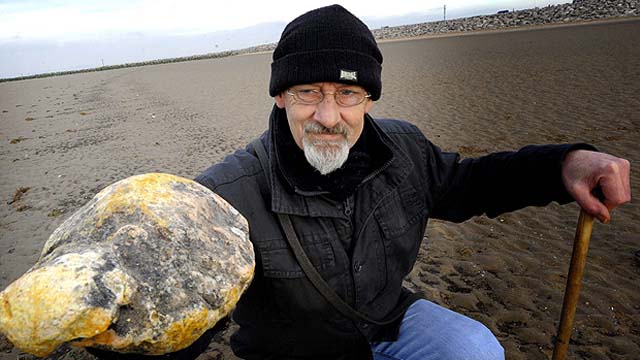
Photo Courtesy of The Sun
While walking his dog along the rough coastlines of Morcambe, England, Ken Wilman came across pure gold. The pure gold was in the form of whale vomit, but it’s believed to be worth over $180,000. Score.
The full credit doesn’t go to Ken, however. It was his dog, Madge, who did the real discovering. Wilman, who is unemployed, told the BBC that his dog …
…started poking at a rather large stone.
Wilman was able to pull his dog away from the stone and return home, but …
…something triggered in my mind…
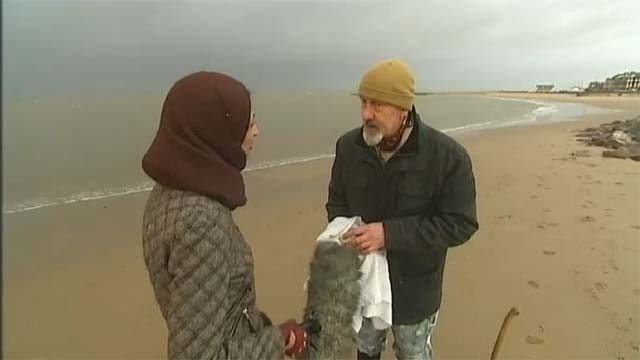
Photo Courtesy of Channel 4 News
He told Channel 4 News in the UK that he Googled large stones in the Morcambe area and realized Madge had struck gold.
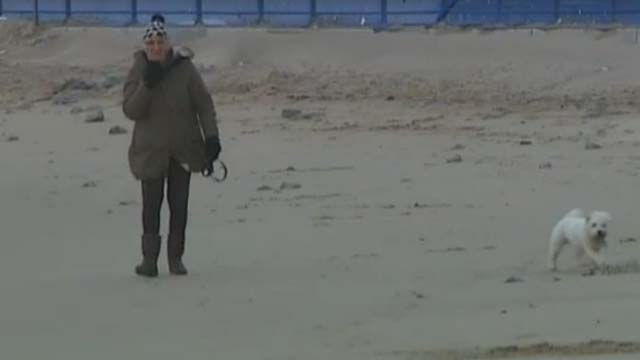
Photo Courtesy of Channel 4 News
The deposit was most likely made by a sperm whale, and the vomit is a seriously valuable commodity used in perfume.
After smelling the puke, Wilman reportedly thought “Urgh,” and said:
It has a musky smell, but the more you smell it the nicer the smell becomes….
Early on, Wilman says, a French dealer offered him the miserly sum of 50,000 euros.
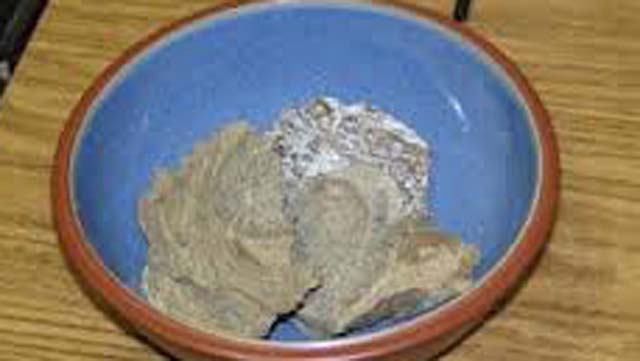
Yum, a bowl of ambergris, just like Mom used to make.
The curator of vertebrates at the National Museum of Scotland, Andrew Kitchener, said:
It’s worth so much because of its particular properties. It’s a very important base for perfumes and it’s hard to find any artificial substitute for it. Over time it becomes a much sweeter smell as it oxidises, but initially it doesn’t smell very nice.
The key ingredient contained in the vomit is ambergris. Regularly dispelled by sperm whales miles away from shore, it is a chemical that helps the whale digest. After being excreted by the whale, the substance is soft and mud-like; through floating in the sea and a mixture of salt and sun, it gradually becomes rock-like.
One of the aids that helps form the ambergris is a fixture of the whale’s diet: octopus beak.
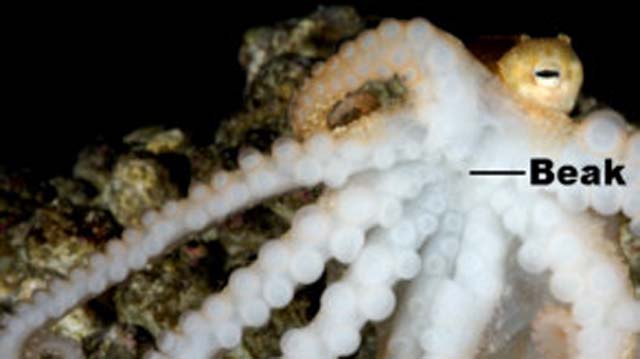
Photo courtesy of Wonderquest.com
Because of rarity, perfume makers have created a synthetic version of the substance, but there is still a huge market for the real thing.
The lifeboat service in Morcambe has warned potential treasure hunters against trying to replicate Wilman’s success. Operations manager Mike Guy said:
The tide comes in so very quickly that it catches people unaware, even people that know it. We’re really worried about people just wandering off on the beach searching for ambergris. They’re very, very unlikely to find any because it’s very rare. We want people to be very aware of the tide and if they’re in any sort of doubt about the conditions where they are walking, get in touch with the coastguard.
